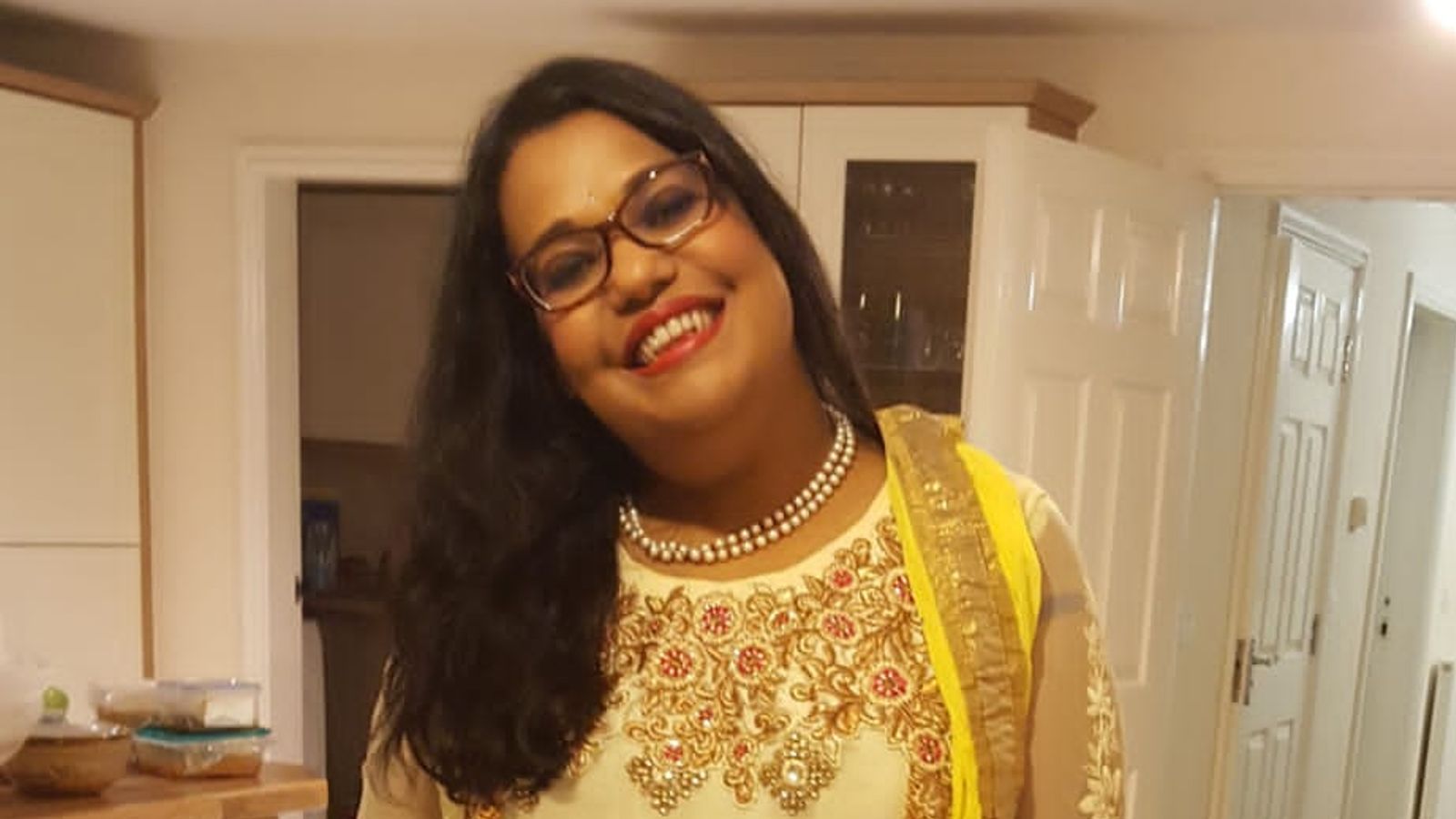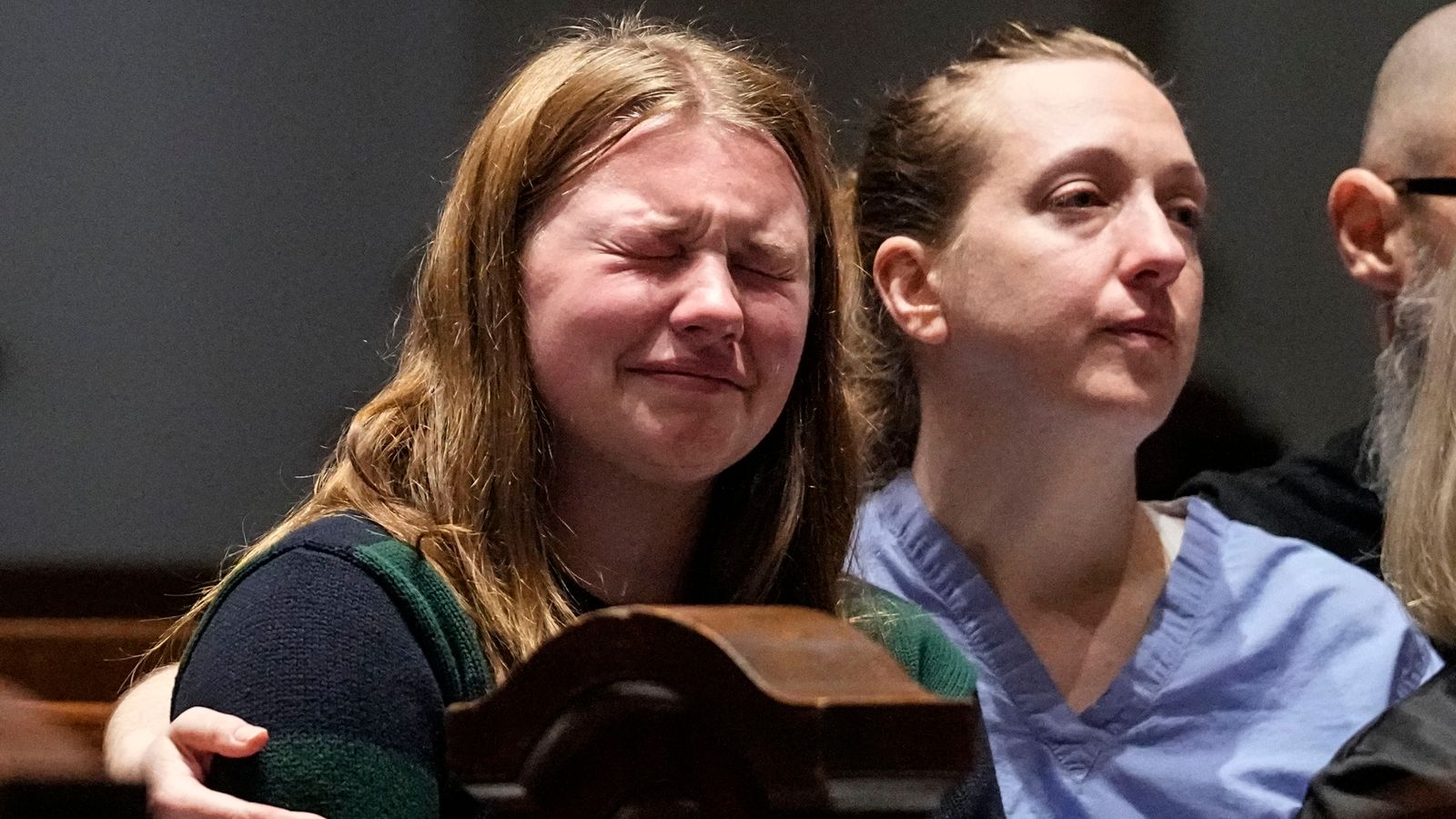The father of a junior doctor who took her own life says action must be taken to change a “toxic environment” at the hospital where she worked.
Dr Ravi Kumar, who also works for the NHS, was speaking ahead of the publication of a report into allegations of bullying at the University Hospitals Birmingham (UHB) NHS Trust, one of the largest hospital trusts in England.
The report has also examined claims of threats of disciplinary action against whistleblowers.
Dr Vaishnavi Kumar killed herself in June last year. The 35-year-old had been working at the Queen Elizabeth (QE) Hospital Birmingham.
Her parents say she left a note before taking a lethal overdose.
“She wrote a letter,” her father told Sky News. “She very clearly mentioned that she was doing this because of the QE hospital.”
After taking the overdose she waited three hours to call an ambulance. Her father says that when paramedics arrived “she said under no circumstances was she going to the QE hospital”.
RCN pay vote: Almost 280,000 nursing staff to vote on new NHS pay offer in England
PM says pension change will reduce NHS backlog through extra hours – but figures show only 105 doctors retired early last year
Hundreds of people have lost sight due to NHS treatment delays
Dr Kumar says his daughter was “bright, fun-loving and compassionate” but things changed soon after she began working at the Queen Elizabeth Hospital.
“She started facing this toxic environment and she started getting a bit more worried and tearful and sometimes when she was coming back from work will say that people are belittling her and demeaning her.
“She used to get very stressed with some consultants when she was doing the handover because of the way they used to treat her during the handover, laughing at her for treatments and things like that.
“And she being a very senior registrar and also quite experienced and well-liked by all the others, that was becoming… it was taking a toll on her.”
‘Each day is a struggle’
Dr Kumar says he hopes the Trust acts on the findings of the report.
“The first thing is to realise, accept that this has happened. The second thing is to find out why it has happened and action be taken” he said.
“It makes me angry and at the same time worried about other junior doctors who are going to follow her.
“Our lives stopped on the 22 June and it’s very hard. Each day is a struggle.
“Now my main worry is to stop it happening to others and that is why I want to bring this forward so people realise that there is a toxic atmosphere”.
The review into UHB has been chaired by Professor Mike Bewick, a former deputy medical director at NHS England, who is now an independent consultant.
Read more:
Former England midfielder suffers ‘suspected heart attack’ while running half marathon
Almost 28,000 nursing staff to vote on new NHS pay offer in England
Trust ‘requires improvement’ according to 2021 CQC rating
The Trust employs more than 20,000 people. As well as the Queen Elizabeth Hospital Birmingham it also operates Birmingham Heartlands Hospital, Good Hope Hospital in Sutton Coldfield, and Solihull Hospital.
In 2021 the Care Quality Commission rated the Trust as “requires improvement” and highlighted concerns about patient safety.
A spokesperson for University Hospitals Birmingham said: “Dr Vaishnavi Kumar was a much loved and respected doctor, who was popular with colleagues and patients alike. Her unexpected death was a tragedy and our heartfelt condolences remain with Vaishnavi’s family.
Be the first to get Breaking News
Install the Sky News app for free
“We have reflected on our response to Vaishnavi’s death, have learnt lessons from this, and are acting on them.
“Dr Kumar wants his daughter’s death to result in improvements in the support offered to all doctors in training and to see a change in the culture of the Trust. We are pleased that he has agreed to work with the Trust on this.”
The Trust said it will respond in full to the findings of the report by Professor Bewick after it has been published.
:: Anyone feeling emotionally distressed or suicidal can call Samaritans for help on 116 123 or email [email protected] in the UK. In the US, call the Samaritans branch in your area or 1 (800) 273-TALK.











